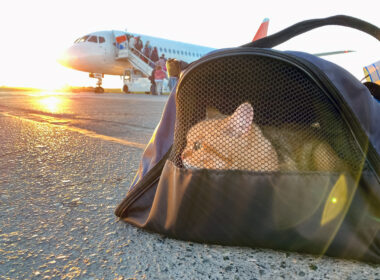Our social calendars are chock-full of office parties, client functions and other alcohol-fuelled events at this time of year. Here’s how to promote positive drinking habits.
That drinking in moderation is a sensible approach is well known, but with the silly season in full swing and the summer holidays fast approaching, not to mention more client functions than usual and end-of-year deadlines, it can be difficult to reign in alcohol consumption at this time of year.
You might be wondering: how much can you chalk up to festive frivolity and how much is genuinely too much?
Tracking our drinking guidelines
Alcohol is Australia’s most widely used social drug, according to federal government statistics. It’s intrinsically linked with celebrations, live music, sporting events, corporate networking and, of course, the festive season.
Yet the largest ever study to assess alcohol and disease, published in The Lancet in 2018, concluded that there is no safe level of drinking. Indeed, the World Health Organisation says alcohol contributes to more than 200 types of diseases and injury.
To reduce the risk of alcohol-related harm, Australia’s National Health and Medical Research Council (NHMRC) released new guidelines in 2020, recommending no more than 10 standard drinks per week and a maximum of four standard drinks on any one day.
The NHMRC “used a rigorous process to develop the new alcohol guidelines, including a systematic review and evaluation of the literature, an independent expert review and stakeholder consultation,” explains Dr Erin Lalor, CEO of Alcohol and Drug Foundation.
Crucially, she says, the expert panel looked at short and long-term harms associated with alcohol, including the risk of injuries while drinking, chronic diseases like cancer and heart disease, and impacts on mental health.
“The guidelines synthesise the evidence and come up with numbers of drinks to help guide people in their decision making about the harms related to alcohol,” says Associate Professor Matthew Gullo, a clinical psychologist at the National Centre for Youth Substance Use Research at The University of Queensland.
Examine your risk of harm
How does a month or so of indulgence affect your risk of alcohol-related harm if you drink in moderation the rest of the year? Associate Professor Gullo says determining potential problems during a short period is difficult.
“It’s really hard to zero in on an amount and say over one particular month that the science is such that we can predict that you could indulge a particular amount and the effects on your liver would be negligible,” he says. “So, we give general guidelines.”
Individual consequences of alcohol consumption – in particular, what you’ve put at risk by drinking – can be a good measure of the impacts, Associate Professor Gullo says.
“Is it affecting your health in the sense of your family relationships? Does it lead to violence or domestic violence? Does it lead to getting behind the wheel of a car when you’re over the limit? How might this month of indulgence affect your liver 20 or 30 years from now?” he says.
“It’s about figuring out how serious you judge these consequences or risks to be.”

Seizing control of the silly season
Your sense of control over your drinking during the silly season can be an effective measurement tool to assess whether your habits are healthy or potentially risky.
“If you reflect on occasions where you thought you were going to indulge a little bit, but you ended up drinking a lot more than you were planning to, that can be a warning sign that you need to have a closer look at your drinking,” Associate Professor Gullo says.
If you’re worried about your relationship with alcohol, or simply want to establish some ground rules for yourself at client functions and Christmas parties, Dr Lalor recommends setting a drinking limit before you arrive an event – and sticking to it.
“Don’t feel pressured to drink heavily just because someone else is covering the bar tab and avoid drinking in rounds as you may end up drinking more than planned,” she says.
“If you’re feeling stressed or down, it may be best to reduce your drinking or avoid it altogether, as it can intensify those feelings.”
Associate Professor Gullo recommends challenging attitudes towards alcohol – especially the pervasive belief that alcohol is an essential social lubricant.
“There are many times when we do just fine when we’re not drinking,” he says. “Perhaps clients found you to be more engaging or attentive, or even entertaining, when you weren’t slurring your speech or as drunk as maybe you thought you needed to be.”
And, he says, flying under the radar as you adjust your drinking habits may not prove difficult because “people probably aren’t watching you as closely as you might think they are”.
“Are you counting the number of drinks that the people in your group are consuming? Probably not,” Associate Professor Gullo says. “If they turned up with something that looked like it was soft drink mixed with spirits, you probably wouldn’t be able to tell if it was just soft drink.”
Need some additional support?
The Law Society of NSW’s Solicitor Outreach Service (SOS) is a confidential counselling service for NSW solicitors.
NSW solicitors can call SOS on 1800 592 296 for access to
- Up to three psychology counselling sessions per financial year
- 24/7 telephone crisis counselling with a psychologist.
SOS is an initiative of the Law Society of NSW and is delivered by third party provider, PeopleSense by Altius.




